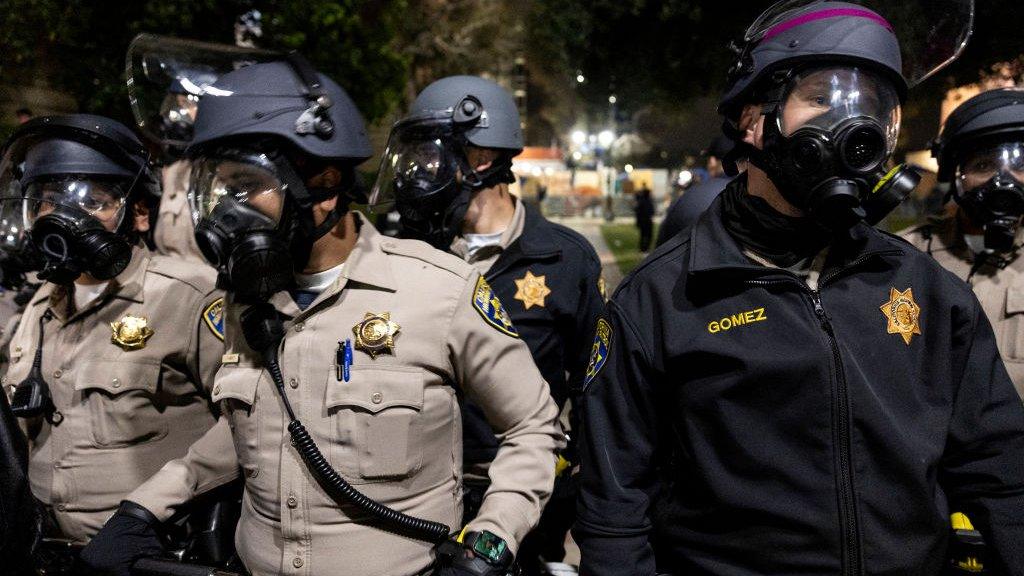French police remove pro-Gaza student protesters
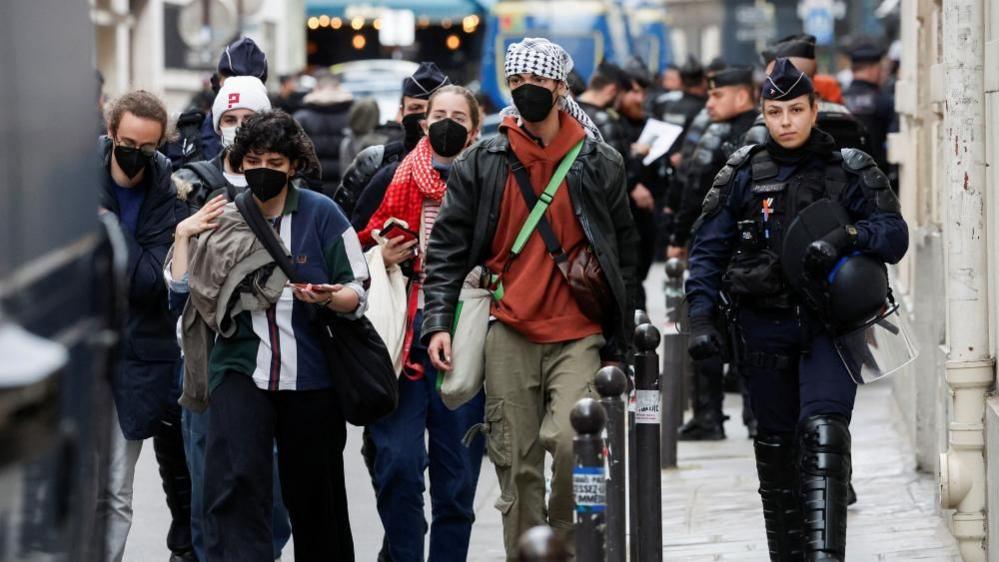
French protesters have echoed those in the US but have not been violent
- Published
Riot police have forcibly removed pro-Palestinian protesters taking part in a sit-in at France's prestigious Sciences Po University in Paris.
Protesters had occupied some buildings to demand that the university cut ties with Israel over the way it is conducting its war in the Gaza Strip.
After their removal, groups headed to the Panthéon to continue their action.
Pro-Palestinian protests have been taking part in university campuses in several countries, most notably the US, over the past few days.
In Paris, dozens of riot police went into the buildings on Friday morning.
They came out with defiant protesters.
One of them said officials had given them an ultimatum to leave within 20 minutes, but that students had defied the order.
Paris police said "91 people were removed without incident".
Prime Minister Gabriel Attal's office was equally determined, saying the authorities would deal with such protests firmly.
- Published2 May 2024
- Published12 April 2024
- Published16 January
Sciences Po closed its main buildings on Friday in response to the sit-in.
A spokesperson said some of the Sciences Po campuses in Reims, Le Havre and Poitiers were also affected by protests.
Similar protests were held in Lyons and Lille.
But the protests in France have been more contained than in the US, a point emphasised by Mr Attal on Thursday.
"In contrast to what we see abroad, namely across the Atlantic, no permanent protest camp... has been established in France," the prime minister said.
He was referring to the days-long camps set up in several American universities, which police have had to dismantle with the arrest of hundreds of people.
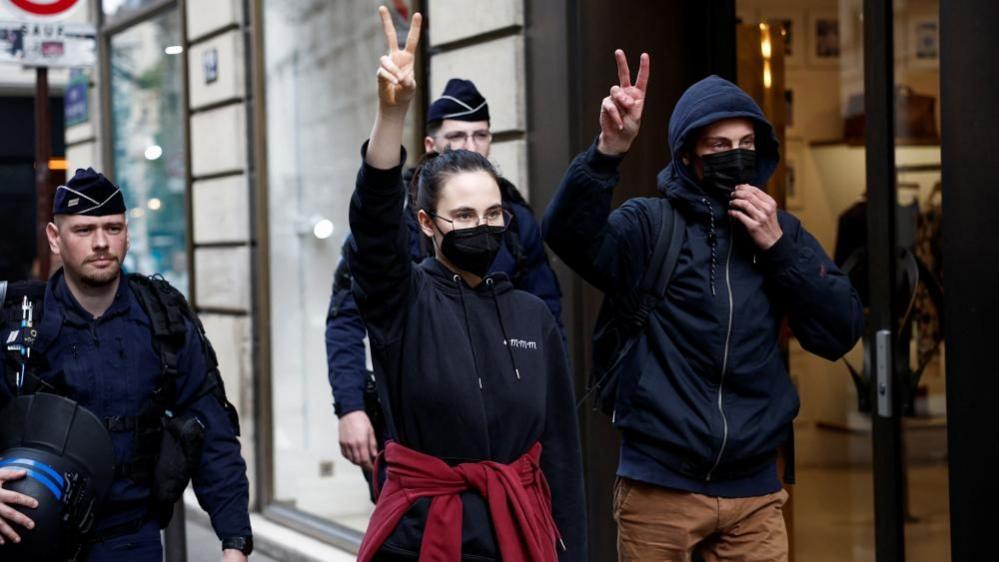
Classes were cancelled at Sciences Po after the sit-in
Israel has come under increasing criticism for conditions in the Gaza Strip.
A UN-backed assessment said last month that 1.1 million people were facing catastrophic hunger and that famine was imminent in northern Gaza.
The UN's most senior human rights official, Volker Türk, has told the BBC that there is a "plausible" case that Israel is using starvation as a weapon of war in Gaza.
Israel denies limiting aid deliveries and has blamed the UN for failing to distribute it to those in need inside Gaza.
Israel launched a military campaign in Gaza to destroy Hamas in response to the group's attack on southern Israel on 7 October, during which about 1,200 people were killed and more than 250 others were taken hostage.
More than 34,600 people have been killed in Gaza since then, according to the territory's Hamas-run health ministry.
On Wednesday, US Secretary of State Antony Blinken told Israel and Hamas that "the time is now" for a deal to bring about a ceasefire in Gaza and free the remaining hostages held there. He said a deal was on the table and Hamas should agree to it.
Mediators are awaiting a response from Hamas to the latest proposal.
It reportedly involves a 40-day ceasefire and the release of more than 30 Israeli hostages in exchange for many more Palestinian prisoners.
Chaos unfolds at Gaza UCLA campus protest
Related topics
- Published2 May 2024
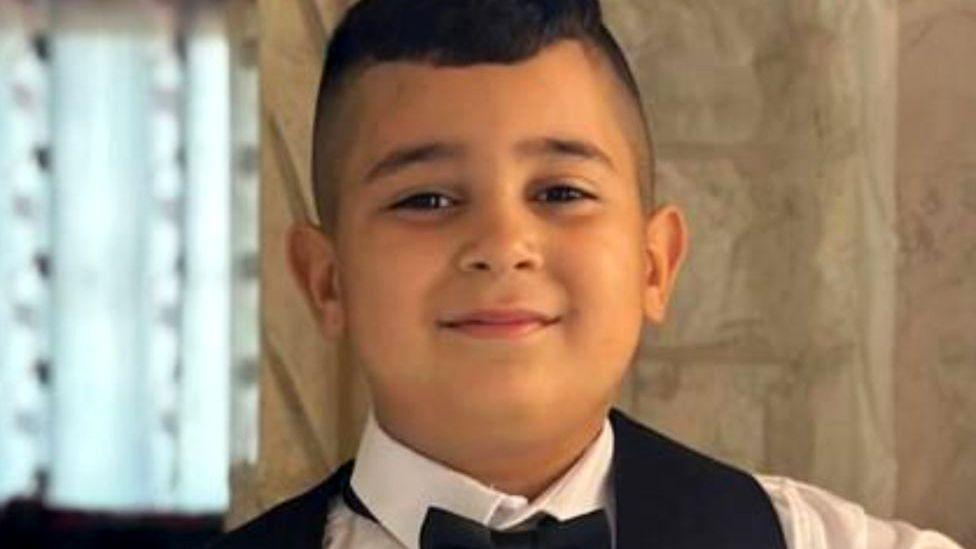
- Published30 April 2024
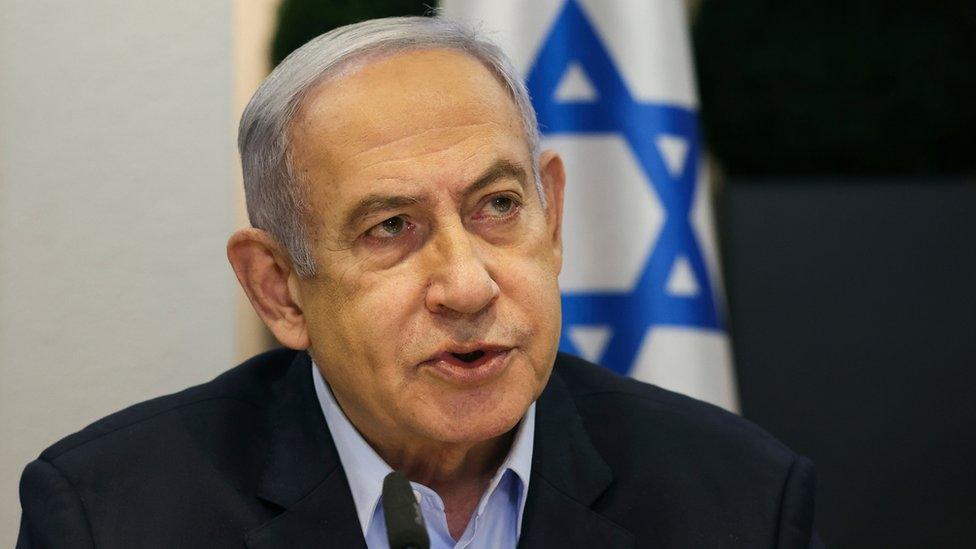
- Published6 April 2024
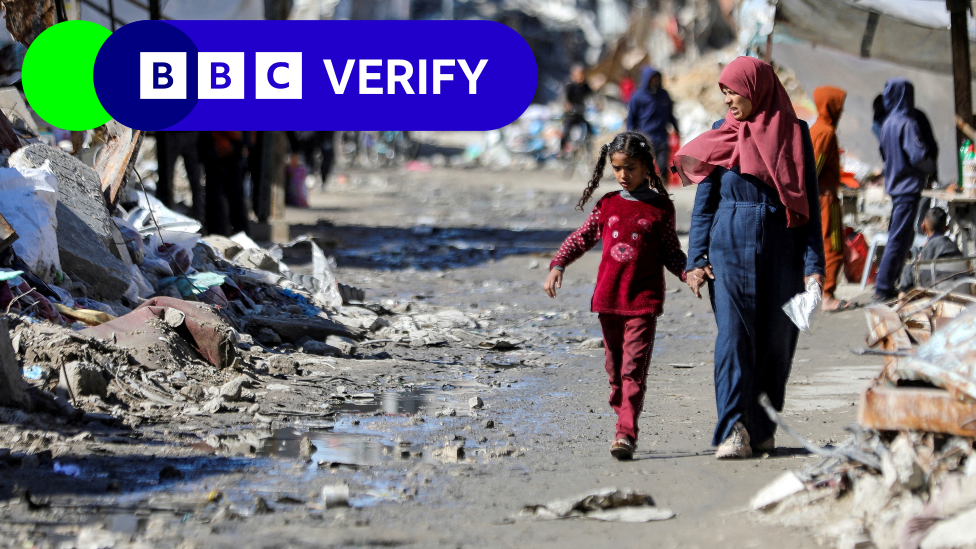
- Published2 May 2024
